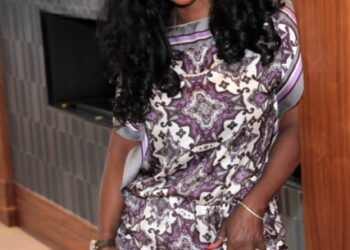Four Seasons may face competition as it sets out to rule the high seas.
Really, the monogrammed robe says it all. It is conveniently located close to the tub, which, by the way, is filled to the full with rose petals, where it hangs in the bathroom’s sparkling white marble. An entire brand philosophy cleverly condensed in a single piece of terrycloth, subtle but just obvious enough.
Four Seasons is the company in question here, and what is its philosophy? Its language of love is that luxury. Executive Vice President and Chief Commercial Officer of the company Marc Speichert says, “It’s these little unscripted gestures that create a sense of the bespoke.” He then tells a story about a housekeeping manager who once saw a photo on a table in a guest’s room and went out to find a frame for it. The guest was thrilled. “The instruction to frame any pictures you uncover was not included in the playbook. He was merely being imaginative and driven by a desire to change the world.”
The top 5+ star companies are engaged in a constant arms race with one another over facilities and experiences in order to attract the super-wealthy, thus the market up there has grown pretty saturated. The sky is the limit when it comes to accessing Michelin-starred chefs, lavishly furnished, Insta-ready settings, cutting-edge spas with cryotherapy chambers, and access to locations that commoners wouldn’t even dare enter (or better yet, know existed). How then do you win over the 1% who is no longer susceptible to being won over? Focus on the small actions of kindness. Create couture. Speichert asserts that “often the simplest item can have a significant impact.”
From Philadelphia to Punta Mita, Cap-Ferrat to Chiang Mai, and most surely in the air on the Four Seasons Private Jet, given what the 0.01 percent spend for that experience, this precise attention to detail, service, and care is probably present throughout the Four Seasons hotel portfolio. And in 2025, when the Four Seasons Yacht embarks on her first journey (reservations open in a year), it will all go down on the water as well, joining the exclusive luxury race that has reportedly migrated from solid ground to the high seas.
The first of three ships in the new Ritz-Carlton Yacht Collection eventually sailed in October after three years of delays; the 624-foot Evrima transported 298 guests throughout the Mediterranean for a week. With only 95 suites (each of which cost more than $4 million to build) and an embarrassment of riches in amenities, such as 11 restaurants, an outdoor movie theatre, the largest pool deck in its class, and common areas designed by Martin Brudnizki, the Four Seasons boat—the first of three currently under construction—will measure 679 feet and carry a much smaller number of passengers.
The yacht conflicts don’t end here because, in December of last year, Aman revealed it was also developing a 600-foot boat with 50 cabins, a spa with a zen garden, and two helipads that will also debut in 2025. Even the aspirational furniture company Restoration Hardware has made an impression on maritime hospitality by outfitting an expedition yacht it purchased in 2019 with its recognisable caramel-hued California cool style of Carrara marble, Italian leathers, slick lacquers, and reclaimed wood.
Which leads us back to the original query: how does one differentiate themselves in a market that is quickly growing cutthroat? Maximum flexibility is what Speichert refers to when he says a visitor on the Four Seasons Yacht will be able to do whenever she pleases (within the bounds of the ship’s port schedule, of course), as opposed to being required to select an itinerary in advance, as is the case on the majority of other cruises. “It depends on how you want to learn about our travels. Your choice.”
The brand also benefits from a vast, unmatched worldwide network of hotels with expert concierge staff on hand to tailor on-shore experiences and share local knowledge. Perhaps you add on a few extra nights at the Grand-Hotel du Cap-Ferrat while the yacht is docked off the shore or at San Domenico Palace, the Taormina hotel that recently starred in season two of The White Lotus (the yacht will summer in the Mediterranean and winter in the Caribbean). As the pieces are put together, “everyone can have a completely different puzzle,” Speichert claims. “Scale exists. We are little in the hospitality perspective, but large in the luxury context.”
The Logan Roys of the world may already own their very own superyachts, natch, but Four Seasons (and its competitors) seem to be betting that they would feel just as at home, and just as meticulously looked after, on its vessel should they be feeling sociable (or need to buy out a boat to fit their friends for, say, a milestone celebration on the Adriatic). Few companies can yet boast of dominating the fields of luxury hospitality on land, sea, and in the air, giving Four Seasons an apparent competitive advantage. A Four Seasons spacecraft might not be far off.

































